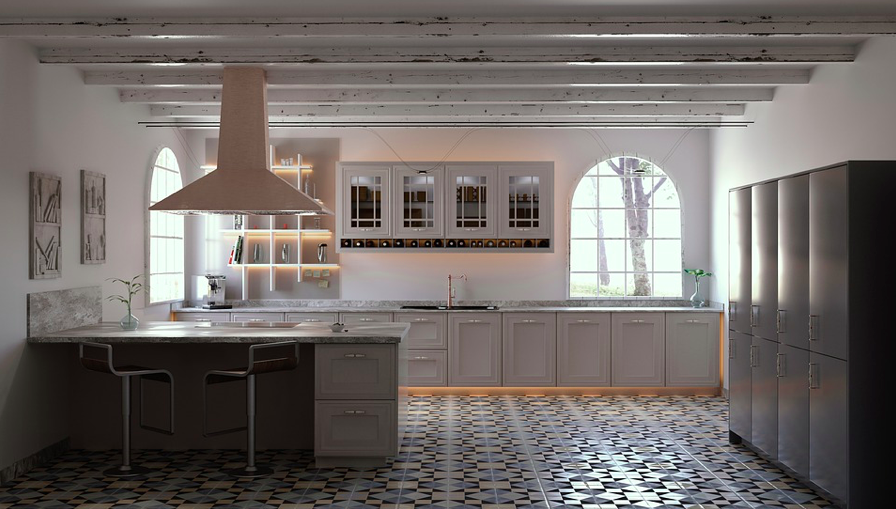Kitchen flooring – which option is tough enough for a busy family home?
When it comes to kitchen flooring, toughness is everything. It’s tempting to just go for the floor material that you love the look of, or that works in the space. But don’t forget to factor in how it’ll work in a busy family home, and how it’ll look in 5-10 years’ time.
Here’s a quick run-through of the toughest kitchen flooring materials out there:
Engineered wood flooring
Wood isn’t generally considered to be the most practical choice for rooms like kitchens and bathrooms where moisture is an issue. However, if you love the look, sealants and protective finishes can make hardwood and bamboo floors more durable and long-lasting.
Another option is engineered wood flooring. These are made by gluing and pressing together layers of ply, with a layer of solid wood on top. The process makes it strong, durable and long-lasting. Plus, it’s more resistant to changes in temperature and humidity than solid wood flooring. It can be sanded and refinished when needed, and you can even use underfloor heating with it.
Tiles
Tiles are a fantastic choice for kitchen floors. They’re easy to install, clean and look after, as well as being durable and hygienic. You can also use underfloor heating with them.
But some tiles are tougher than others. Porcelain could be the best choice if durability is a concern, as it’s harder than ceramic. This means it’s less likely to chip. You can find porcelain tiles in all kinds of finishes, including surprisingly realistic marble-effect designs.
You could also look into terracotta tiles, as they’re solid-bodied and have bags of aesthetic appeal. But avoid the cheapest options out there, as these can crack and chip more than porcelain.
Concrete/resin
Poured floors like polished concrete or resin may be costly, time-consuming and tricky to install, but they can be wonderfully durable. It’s crucial to seal this kind of floor properly, using good quality products. Otherwise, it won’t be water and stain resistant. Get it right though and you’ll end up with a hard-wearing floor that’s easy to clean and maintain.
These floors are super compatible with under-floor heating too, and you can re-sand and reseal whenever you need to.
Vinyl
Vinyl floors are often considered a cheap and cheerful option, but you’ll be surprised at how durable modern vinyl floors can be. LVT flooring materials are water-resistant and incredibly easy to clean, as well as being comfortable underfoot.
You need to choose a good quality product though, as cheaper versions won’t have the thick wear layer to protect against scratches and other damage. It’s also really important to lay it properly, ensuring the sub-floor is level and in good condition.
Need expert help installing your kitchen floor, or fitting any other part of your new kitchen? Get in touch with our specialist Manchester kitchen fitters here at A&J Kitchens.



 RSS Feed
RSS Feed